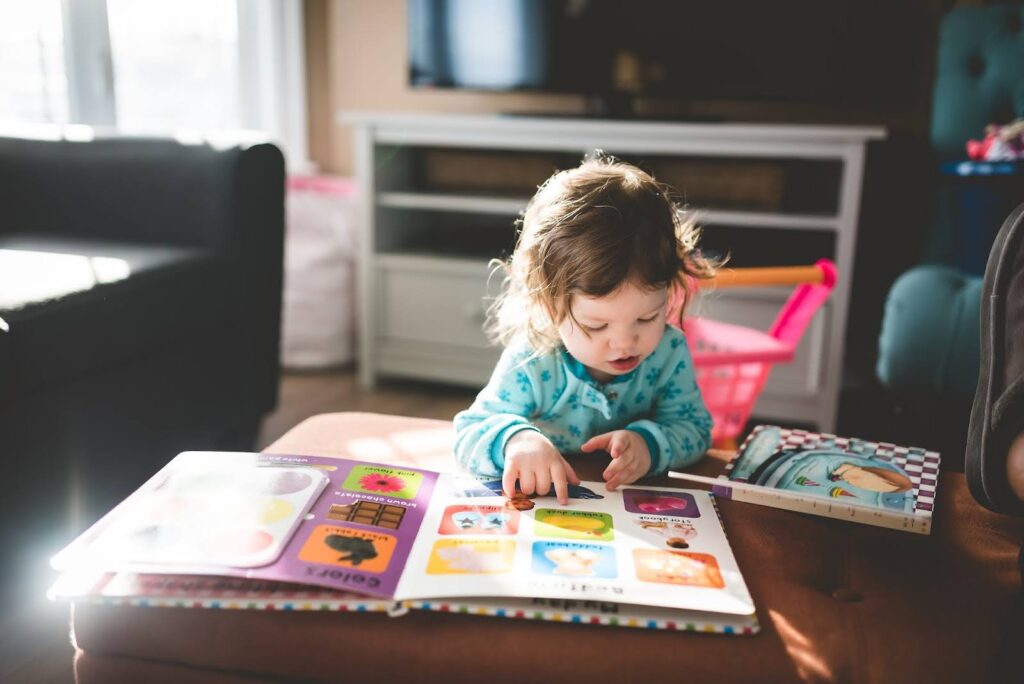Early childhood is a remarkable period of growth and discovery, where children rapidly develop skills that lay the foundation for their future. From their first smile to their first steps, each milestone represents a critical achievement in their journey towards independence and learning. As parents and caregivers, understanding these milestones can help you nurture your child’s development and provide the support they need to thrive.
If you’re exploring opportunities to complement your child’s growth, places like child care Matraville can offer structured environments tailored to early developmental needs. This guide covers the key milestones in early childhood development, breaking them down into cognitive, physical, emotional, and social domains to help you recognise and celebrate your child’s achievements.
What Are Developmental Milestones?
Developmental milestones are skills or behaviours that most children achieve within a specific age range. While each child grows at their own pace, these milestones provide a helpful benchmark for tracking progress and identifying areas where additional support might be needed.
Key Areas of Development:
- Cognitive Development: The ability to think, learn, and solve problems.
- Physical Development: Growth in fine and gross motor skills.
- Emotional Development: Understanding and expressing emotions.
- Social Development: Interacting and building relationships with others.
Infancy (0–12 Months)
The first year of life is filled with incredible growth and rapid development. Infants learn to explore their surroundings, communicate basic needs, and form attachments with caregivers.
Cognitive Milestones:
- Recognising Faces: By 2–3 months, babies can recognise familiar faces, especially those of their caregivers.
- Cause and Effect Understanding: Around 6 months, infants start realising that their actions have outcomes, like shaking a rattle to make noise.
- Object Permanence: By 8–12 months, babies understand that objects exist even when they can’t see them, an essential step in memory development.
Physical Milestones:
- Lifting Their Head: At around 2 months, babies gain neck strength and begin lifting their heads during tummy time.
- Sitting Unassisted: By 6 months, many babies can sit without support.
- Crawling and Standing: By 9–12 months, most infants start crawling and pulling themselves up to stand.
Social and Emotional Milestones:
- Smiling: A baby’s first social smile often appears around 6 weeks, showing early signs of emotional connection.
- Stranger Anxiety: Around 8–9 months, babies may show hesitation or fear around unfamiliar people, indicating developing social awareness.
Toddlerhood (1–3 Years)
Toddlers are full of curiosity and energy, making this stage one of discovery and exploration.

They begin asserting independence while learning essential skills for communication and movement.
Cognitive Milestones:
- Imitating Actions: Toddlers love mimicking adults, from pretending to cook to copying words and gestures.
- Problem-Solving: By age 2, many toddlers can solve simple puzzles or figure out how to stack blocks.
- Imaginative Play: Around age 3, children engage in pretend play, demonstrating creativity and understanding of their environment.
Physical Milestones:
- Walking and Running: Most toddlers take their first steps around 12–15 months and progress to running by age 2.
- Fine Motor Skills: By age 2, toddlers can hold crayons and begin scribbling. By age 3, they may attempt drawing simple shapes.
- Climbing and Jumping: Gross motor skills improve as toddlers gain confidence in climbing and jumping.
Social and Emotional Milestones:
- Parallel Play: Around age 2, toddlers play alongside peers but may not interact directly.
- Expressing Emotions: Toddlers start showing a wider range of emotions, from joy to frustration, and begin learning to manage them.
- Forming Attachments: Strong bonds with caregivers help toddlers feel secure as they explore the world.
Preschool Years (3–5 Years)
Preschoolers experience significant growth in language, social interactions, and self-regulation. This stage is all about preparing for school and developing independence.
Cognitive Milestones:
- Asking Questions: Preschoolers love asking “why” as they explore the world and seek to understand how things work.
- Counting and Sorting: By age 4, many children can count to 10 and sort objects by colour, size, or shape.
- Storytelling: Around age 5, preschoolers enjoy creating and telling stories, showcasing their language and imagination.
Physical Milestones:
- Coordination and Balance: Preschoolers refine skills like hopping, skipping, and balancing on one foot.
- Using Tools: By age 5, many children can use scissors, write their name, and build with smaller blocks.
- Active Play: This is a great age for sports and outdoor activities as their gross motor skills improve.
Social and Emotional Milestones:
- Cooperative Play: Preschoolers begin playing and sharing with peers, learning teamwork and problem-solving.
- Empathy: By age 4, children start recognising and responding to the emotions of others.
- Understanding Rules: Preschoolers begin understanding rules and routines, essential for school readiness.
Supporting Your Child’s Development
Every child is unique, and their path to reaching milestones may differ. Providing a supportive environment and engaging in activities tailored to their interests can encourage growth across all domains.
1. Encourage Exploration
Provide opportunities for your child to explore and experiment, fostering curiosity and independence.
Activities to Try:
- Set up sensory bins with different textures, colours, and objects.
- Offer puzzles, building blocks, and age-appropriate games to challenge their thinking.
2. Promote Physical Activity
Physical activity strengthens muscles, improves coordination, and supports overall health.
Ideas for Physical Play:
- Organise outdoor games like tag or hopscotch.
- Enrol in activities such as swimming, dance, or gymnastics.
3. Foster Social Connections
Encourage your child to interact with peers and adults to build social skills.
Tips for Social Development:

- Arrange playdates with friends or siblings.
- Read books that teach empathy and discuss emotions.
4. Celebrate Achievements
Recognise and celebrate milestones to boost your child’s confidence and motivation.
How to Celebrate:
- Offer praise for their efforts, not just the results.
- Create a “milestone journal” to document and reflect on their growth.
When to Seek Support
While children develop at their own pace, it’s important to seek professional guidance if you notice delays or concerns in specific areas.
Signs to Watch For:
- Missing several milestones within their age range.
- Difficulty communicating, interacting, or engaging in play.
- Challenges with motor skills or coordination.
Consulting a paediatrician or early intervention specialist can help identify any underlying issues and provide targeted support.
The Role of Early Education
Early childhood education centres play a vital role in supporting milestone achievement. These environments provide structured activities, social interactions, and professional guidance that nurture children’s development.
Benefits of Child Care:
- Access to trained educators who understand developmental milestones.
- Opportunities for children to learn and grow alongside peers.
- Support for working parents while ensuring their child’s needs are met.
Final Thoughts
Tracking key milestones in early childhood development helps parents and caregivers understand their child’s growth journey while celebrating every step along the way. From infancy to preschool years, each achievement reflects the incredible learning and discovery that define early childhood.
By providing a nurturing environment, engaging in meaningful activities, and seeking professional support when needed, you can help your child thrive. Remember, every child develops at their own pace—enjoy the journey and cherish the moments as they grow into confident, capable individuals.



